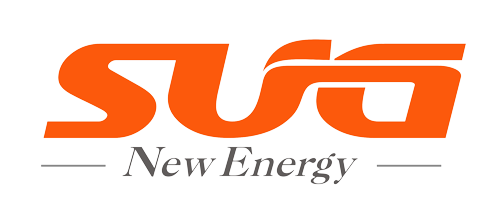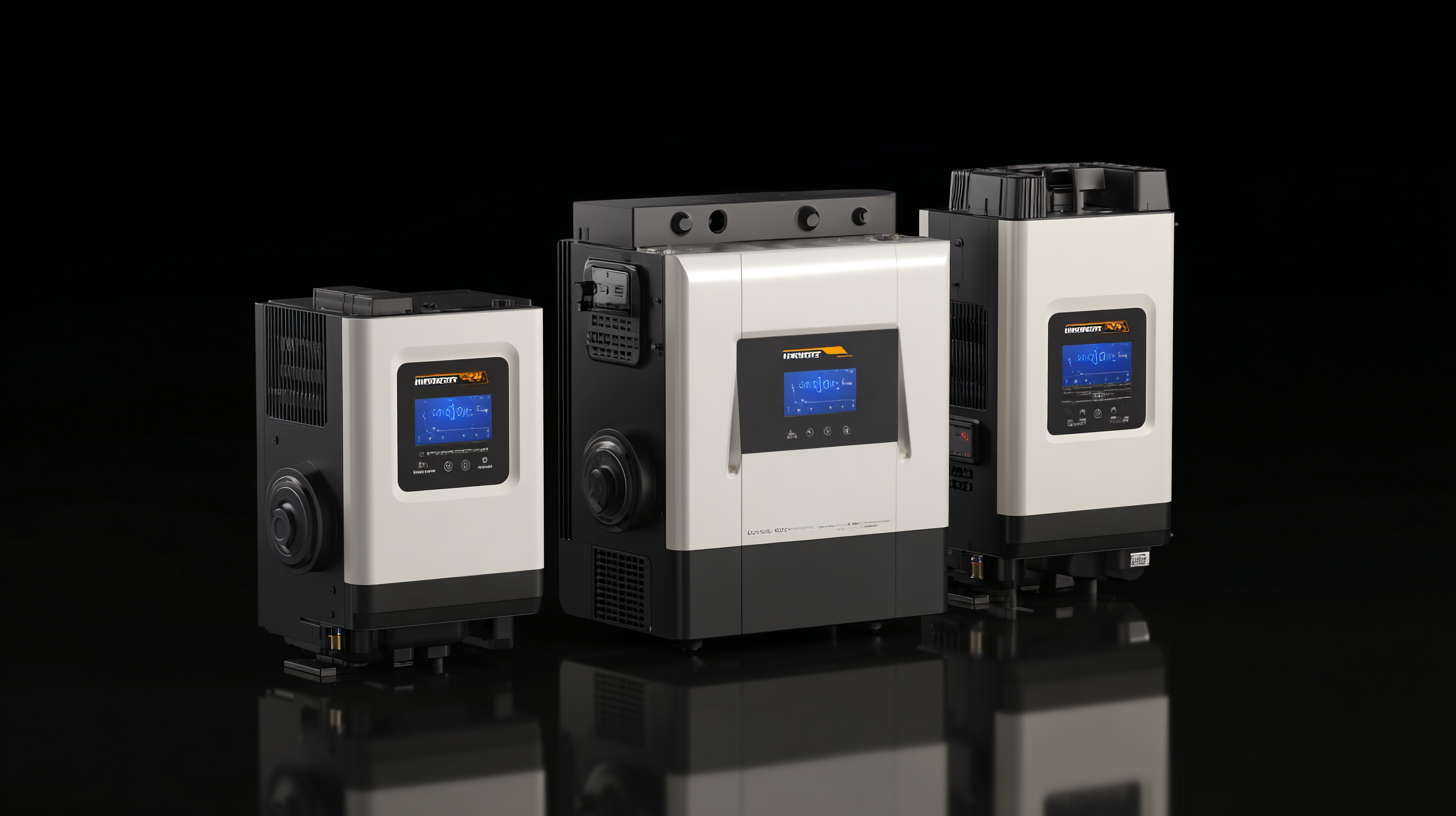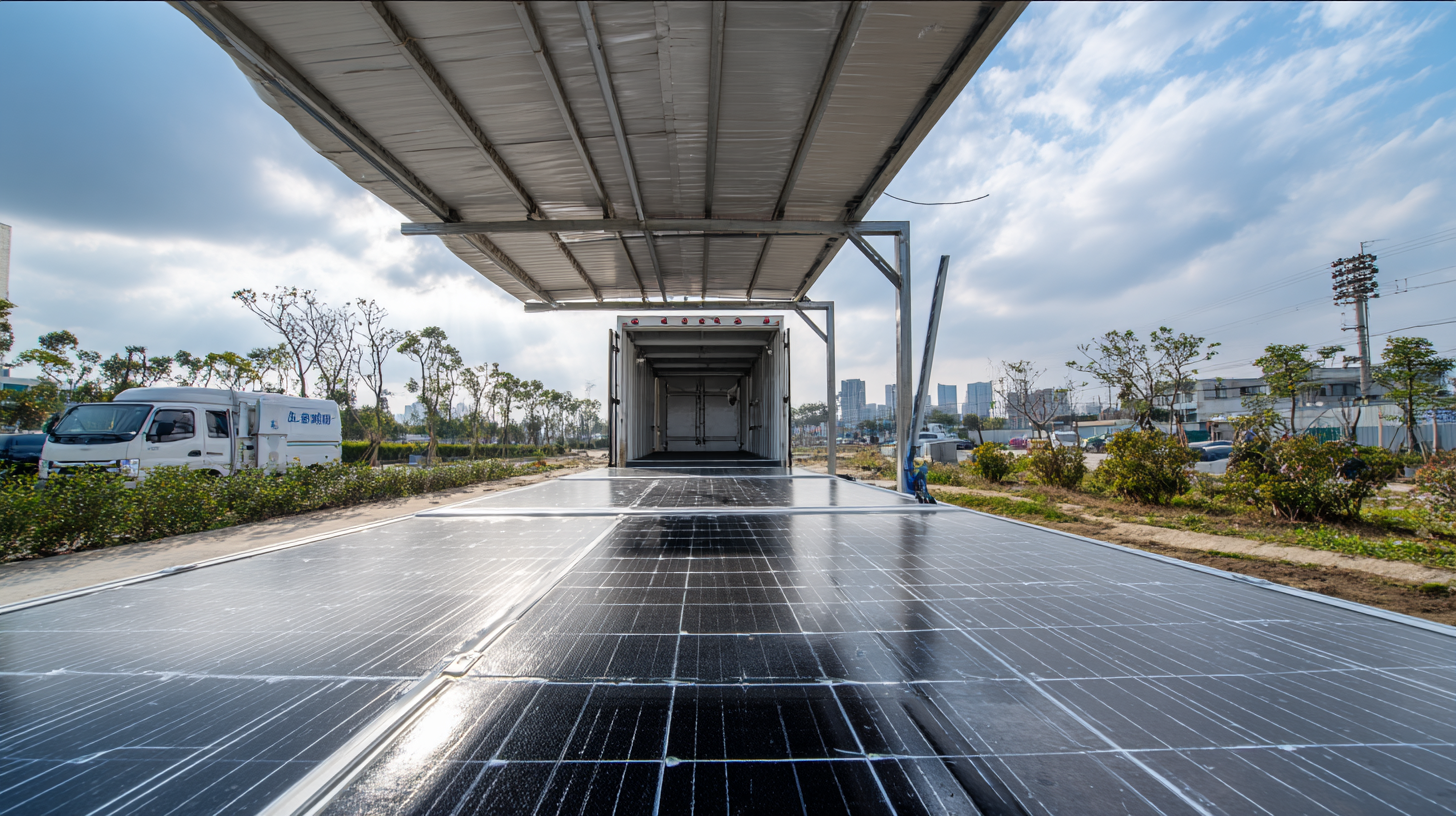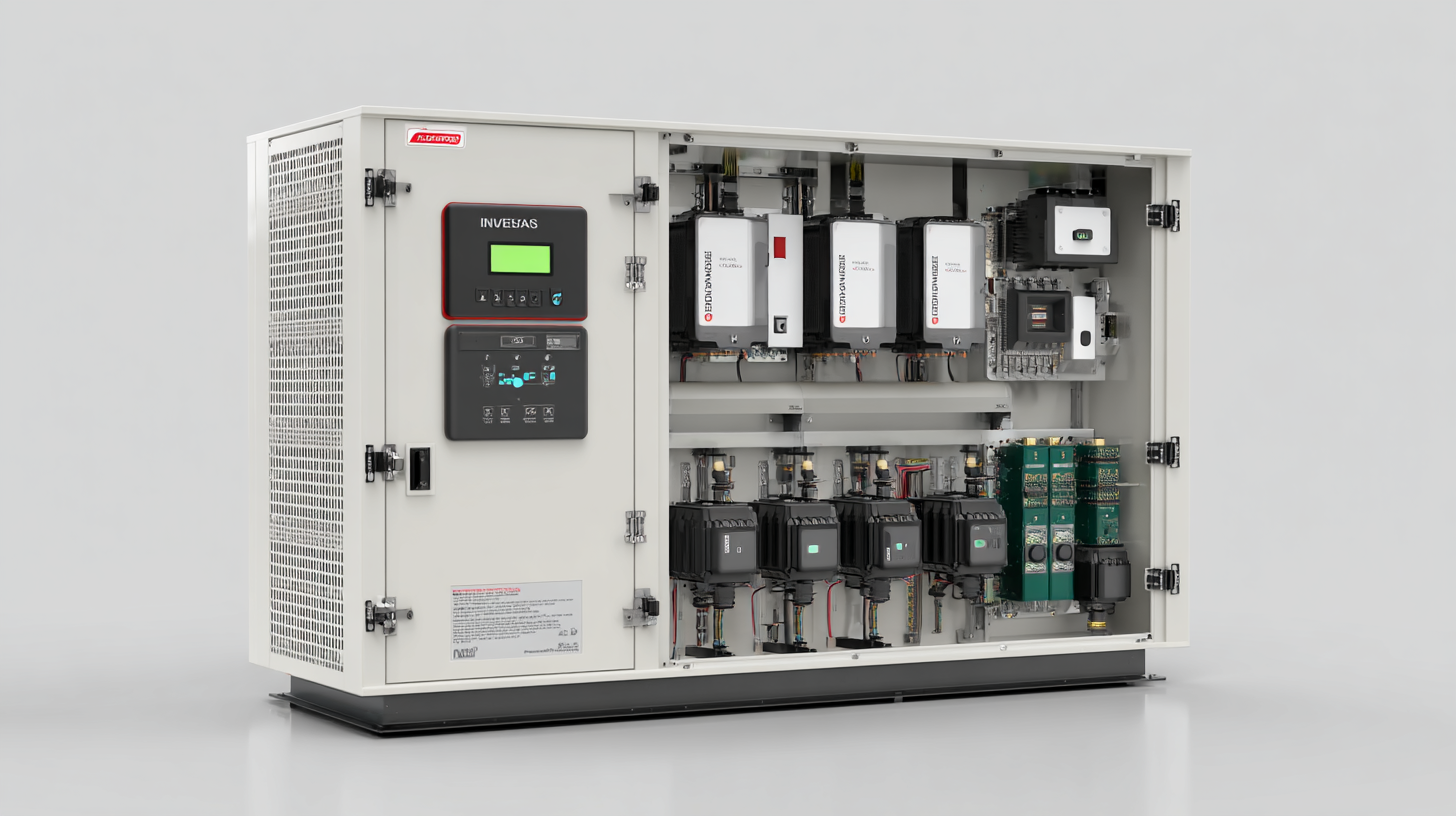
In recent years, the demand for sustainable energy solutions has surged, leading to a significant interest in Off Grid Hybrid Inverters. According to the International Renewable Energy Agency (IRENA), the global off-grid solar market is expected to reach $20 billion by 2025, fueled by the need for reliable energy in remote and underserved regions. These innovative inverters play a crucial role in integrating renewable energy sources—such as solar, wind, and batteries—providing users with flexibility and energy independence. As the world shifts towards greener initiatives, Off Grid Hybrid Inverters not only enhance energy efficiency but also contribute to lowering carbon footprints, making them indispensable in the quest for sustainable energy solutions.

This blog will explore the unique features and diverse applications of the best off-grid hybrid inverters, highlighting their transformative impact on energy generation and consumption in various setups.
Off-grid hybrid inverters are at the forefront of renewable energy solutions, boasting unique design features that significantly enhance their market appeal. One notable innovation is the integration of advanced energy management systems, which optimize energy consumption and storage. According to a report by Research and Markets, the global off-grid inverter market is projected to grow at a CAGR of 7.6% from 2021 to 2026, fueled by increasing reliance on sustainable energy sources. This growth is largely driven by the demand for inverters that can seamlessly integrate solar, wind, and battery storage, offering users greater efficiency and control over their energy use.
Another key feature of top off-grid hybrid inverters is their robust safety mechanisms. Many models now include built-in protections against over-voltage and short-circuits, ensuring reliable operation in diverse environments. The International Renewable Energy Agency (IRENA) reports that the adoption of hybrid systems is rising, particularly in remote areas where grid access is limited. These advancements not only enhance performance but also reduce the total cost of ownership, making off-grid hybrid inverters increasingly attractive to both residential and commercial users looking for sustainable energy solutions. As innovation continues, the impact of these inverters on the renewable energy market is expected to become even more pronounced, paving the way for a greener future.
In the realm of renewable energy solutions, off-grid hybrid inverters have emerged as powerful tools for maximizing efficiency and performance in diverse applications. A comparative analysis of these devices reveals critical insights into their efficiency ratings and performance metrics, which can significantly influence energy independence strategies. Hybrid inverters combine solar, wind, and battery systems, allowing users to harness varying energy sources. This flexibility not only enhances energy reliability but also improves overall system efficiency, particularly in regions where grid access is unreliable.
When evaluating off-grid hybrid inverters, performance metrics such as conversion efficiency, load handling capability, and battery management functions play a vital role. Higher efficiency ratings indicate that more of the generated energy is used effectively, minimizing waste and optimizing storage potential. For instance, some models boast efficiency ratings above 95%, ensuring that users get the most out of their energy systems. Additionally, advanced monitoring features enable real-time performance tracking, helping users fine-tune their energy solutions for maximum efficacy. Ultimately, understanding these comparative metrics allows consumers and businesses to make informed decisions, ensuring they select the hybrid inverter best suited to their unique energy needs.

Off-grid hybrid inverters have become increasingly vital in rural electrification projects, offering practical solutions to energy access challenges. In various case studies, these inverters have been integrated with solar panels and battery storage systems to create reliable energy sources in distant communities. Such implementations have transformed the lives of people in rural areas by facilitating continuous access to electricity for essential services, including healthcare, education, and small businesses.

One notable case study involved a remote health facility that struggled with power supply inconsistencies. By installing an off-grid hybrid inverter system combined with solar panels and batteries, the facility achieved a stable energy supply, ensuring that critical medical equipment could function uninterrupted. This not only improved patient care but also enhanced the overall resilience of the health service in that community.
Similarly, other projects showcased the versatility of hybrid systems, demonstrating their effectiveness in addressing unique energy needs while minimizing reliance on conventional fuels. The ongoing momentum behind such initiatives highlights the potential for off-grid hybrid inverters to reshape energy landscapes in underserved regions.
Selecting the right off-grid hybrid inverter is crucial for optimizing diverse energy needs and settings. According to the International Renewable Energy Agency (IRENA), the global off-grid renewable energy market has experienced a remarkable surge, with a compound annual growth rate (CAGR) of over 30% from 2019 to 2023. When choosing an inverter, it's essential to consider the power capacity required for your specific applications, as well as the system's efficiency. High-quality hybrid inverters can achieve efficiency ratings upwards of 95%, significantly improving overall energy utilization.
Another vital factor to consider is the inverter's compatibility with various energy sources such as solar panels, wind turbines, and battery storage systems. A report from the Energy Storage Association (ESA) indicates that hybrid inverters that are designed to work with both solar and batteries can optimize energy consumption by managing supply and demand effectively. Moreover, the ability to handle different voltage inputs enhances flexibility, allowing users to adapt their energy systems to changing needs over time. By considering these features and the specific requirements of your setup, you can ensure that you choose an off-grid hybrid inverter that maximizes efficiency and performance in any setting.
| Feature | Description | Application | Power Output (kW) | Battery Compatibility |
|---|---|---|---|---|
| Pure Sine Wave Output | Provides a clean power source suitable for sensitive electronics. | Residential and commercial use. | 3.0 | Lithium-ion, Lead-acid. |
| MPPT Technology | Maximizes energy harvest from solar panels. | Solar power systems. | 5.5 | AGM, Gel. |
| Advanced Monitoring | Real-time data tracking via mobile apps. | Remote monitoring for businesses. | 8.0 | All types. |
| Multiple Input Sources | Supports solar, wind, and grid connections. | Hybrid energy systems. | 10.0 | Lithium-ion. |
| Energy Storage Integration | Seamless integration with battery systems. | Emergency backup power. | 6.5 | Lead-acid, Lithium-ion. |
The landscape of off-grid hybrid inverters is evolving rapidly, driven by innovations that enhance their efficiency and application in diverse energy solutions. As the demand for sustainable energy sources grows, emerging trends in technology are revolutionizing how off-grid systems operate. Advancements in inverter technology are not only improving energy conversion efficiency but also integrating better with renewable sources such as solar and wind. These innovations pave the way for more resilient and versatile energy systems, ensuring reliable power supply even in remote locations.
The future applications of these hybrid inverters are promising. They are positioned to play a pivotal role in smart buildings and microgrids, where energy management and storage solutions are critical. With trends indicating a shift towards energy independence, businesses and homeowners alike are exploring the advantages of off-grid systems. As more companies enter the market, the competition is likely to spur further technological advancements, enabling a broader adoption of hybrid inverters. This evolution will undoubtedly shape the future of energy solutions, making them more accessible and efficient for various applications.